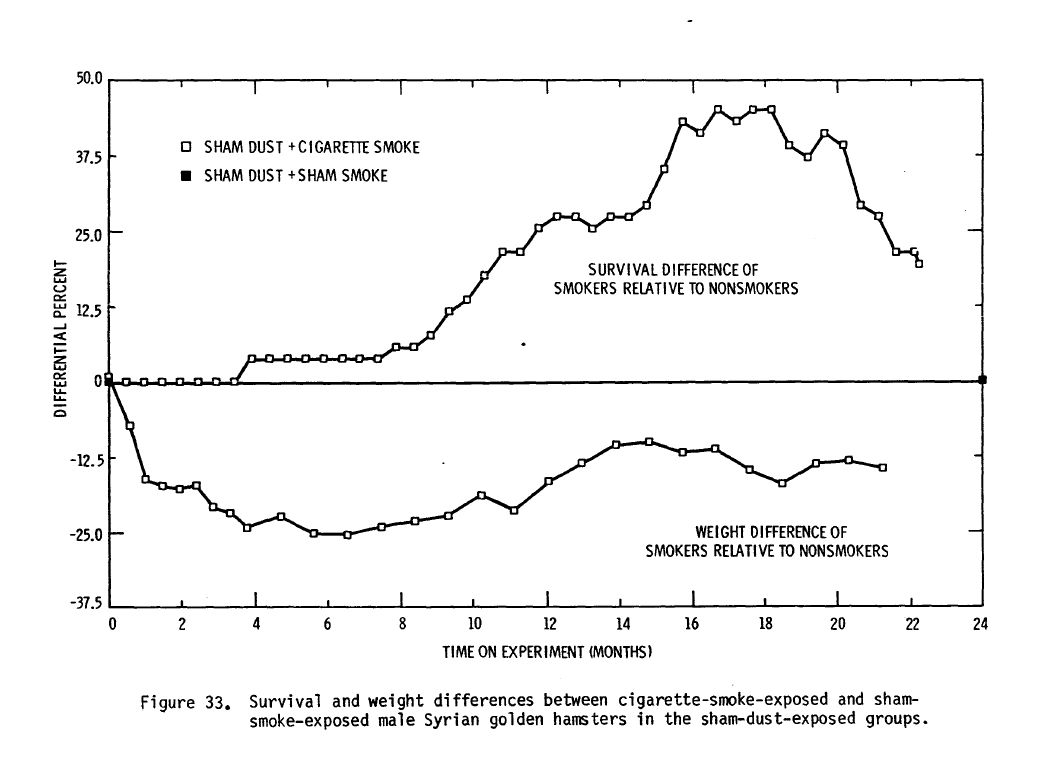The Current FReepathon Pays For The Current Quarter's Expenses?

Posted on 08/17/2014 12:18:13 PM PDT by Slings and Arrows
Though the dangers secondhand smoke poses to humans are well documented and understood, many smokers still subject their pets to these hazards on a daily basis. It is becoming increasingly apparent, however, that doing so puts our furry friends in harm's way as much as it does us. As recently as 2006, the Surgeon General's Annual Report stated that secondhand smoke puts pets at risk, and numerous professional organizations have issued statements encouraging pet owners to keep their homes smoke-free for the benefit of their animals. If you're considering quitting smoking but need a bit more motivation, think of the health benefits that your pet could gain.
Secondhand smoke can cause lung cancer and other diseases in many pets, but cats are at a higher risk than dogs. According to Americans for Nonsmokers' Rights, that fact has largely to do with the grooming habits of felines.
"One reason cats are so susceptible to secondhand smoke is because of their grooming habits. Cats constantly lick themselves while grooming, therefore they lick up the cancer-causing carcinogens that accumulate on their fur," Dr. Carolyn MacAllister, a cooperative extension service veterinarian with Oklahoma State University, told the source.
In addition to dogs and cats, birds have been known to acquire cancer and disease as a result of secondhand smoke.
The Current FReepathon Pays For The Current Quarter's Expenses?

They will get stomach cancer from licking the tar reside from their fur. Have seen it happen. Smokers are extremely selfish!
So what evidence do you have aside your belief of what caused the cancer?
Thank Ceiling Cat she ended up with you.
No argument.
What difference does it make to you?
Damn! You’re on a roll today!
I thank Ceiling Cat every day:)
> Damn! You’re on a roll today!
No point in loafing.
WRONG!
That junk science was discredited years ago. It's a tenet of faith to the nannies. But, it just happens to be a big lie.
I'd be open to the idea that it could hurt dogs & cats. But not people.
I smoked 35 years. Had 3 cats. One lived 19 years, one 17 years and one got hit by a car.
The science is closed, Cripple.
The consensus (of one) is unanimous!
lol
I thought I’d seen everything alarmist and chicken little-ish about smoking, alcohol, sugar and fat and everything else personal the nannies want to be up your ass about-it seem that I was mistaken...








Well, I’m sure some nanny somewhere must have proof-and put down that beer, and those chips-your dog might eat one...
What’s next?
Gluten-free catnip?
In fact there were plenty of experiments done by antismoking scientists over the last six decades of "scientific" antismoking seeking to prove the harm from inhalation of tobacco smoke, but you will never see them mentioned in the media or hear about them from your doctor.
The reason for the odd silence is that they all went the "wrong" way -- the smoking animals live 20% longer while staying livelier, sharper and thinner into the old age. This "paradox" persisted even under the most extreme and unnatural smoking conditions such as smoking sessions concentrated to few hours per day with smoke levels boosted to the very edge of asphyxiation. Still, the smoking animals outlived the non-smoking ones (e.g. at the end of couple recent experiments by the time all nonsmoking mice or rats died, half the smoking animals were still alive).
Interestingly, when some real lung carcinogens are given to animals, such as radon to dogs in one experiment, 7 times fewer smoking dogs got lung cancer than non-smoking dogs.
In early 1970s National Cancer Institute sought to scientifically show damage from smoking in work place (as part of Nixon's "war on cancer", laying groundwork for workplace smoking bans), so they contracted the largest animal study to date, on Syrian Golden Hamsters (great hope of sntismoking research at the time, since they were particularly sensitive to smoke).
Unfortunately for them, the 'great hope' backfired horribly, showing exactly the opposite from what they wished to show -- tobacco smoke was protective against variety of industrial toxins and carcinogens, and smoking animals in all groups outlived (by about 20%) the non-smoking animals (pdf, p. 40):
"With the exception of the two asbestos-exposed groups (Groups 5 and 6), the groups exposed to cigarette smoke lived significantly (p<0.05) longer than their sham-smoke-exposed cohorts. The hamsters exposed to asbestos plus cigarette smoke also outlived their sham-smoke-exposed cohorts; however the difference was not statistically significant. Asbestos decreased the lifespan of the asbestos-exposed groups and thereby masked, to a degree, the difference in the survival between the smoke-exposed animals and their sham-smoke-exposed cohorts which is so readily apparent in other groups (Figure 23)."
Here are survival curve & weight curve for smoking group and group group inhaling Hepa filterted air: when nearly all non-smoking hamsters died (at around 18 months), nearly 50% of smoking hamsters were still alive. The weight curve shows smoking animals having 10-25% lower weight for nearly entire lifespans.

For references and discussion see this post with links to highlights of a longer thread Smoking is good for you in health & life-extension forum Longecity.
Too funny!
I can see Flava Flav as a cat.
There is already gluten-free pet food-my dog and cats tried to hide the coupon from me that came in the mail...
Disclaimer: Opinions posted on Free Republic are those of the individual posters and do not necessarily represent the opinion of Free Republic or its management. All materials posted herein are protected by copyright law and the exemption for fair use of copyrighted works.